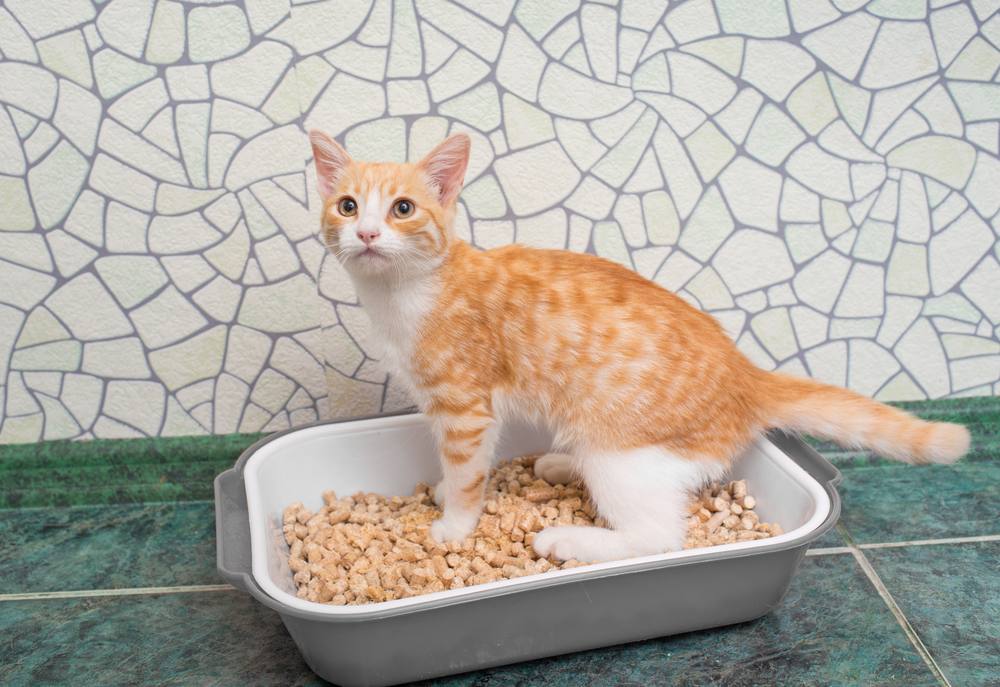
Do you ever find yourself looking at the deposits in your cat’s litter box and wondering if they are normal? While most of us know what to expect when it comes to our toilet trips, it can be daunting for any new pet owner to know what to expect when it comes to the litter box.
For most cats, average pooping frequency is every 12 to 36 hours. The frequency of healthy bowel motions can be affected by age, diet, and activity levels. An increase or decrease in stool frequency can be seen with various medical problems, so talk to your cat's veterinarian if you notice something has changed.Quick Overview
This is especially true when it comes to how often you should be scooping out those little brown deposits. Did you know your cat’s toileting habits can give you a wealth of information about their health? In this article, we will explain normal and abnormal cat poop.
What Is Normal When It Comes to Cat Poop?
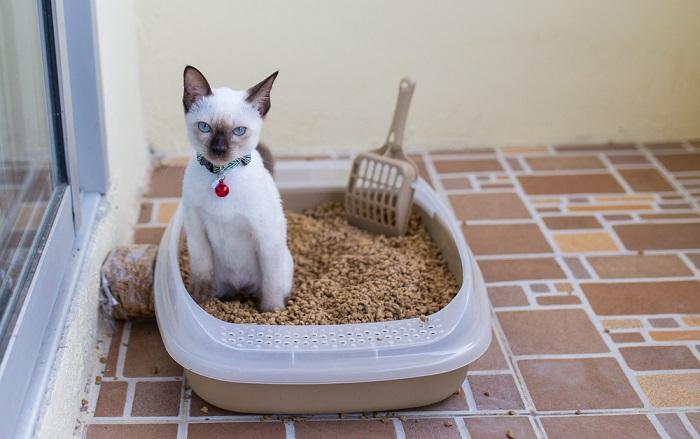
The color, consistency, and frequency of your cat’s poop can tell you a lot about their health.
Generally, when I think about poop (and as a veterinary surgeon who has specialized in the field of internal medicine, I spend a lot of time thinking about it!), I consider three main categories: What color is it, what is its consistency, and how often is it coming out? First, let’s discuss what is normal when it comes to poop:
- Color: A healthy feline bowel movement should be milk chocolate to dark chocolate brown in color.
- Consistency: A healthy stool should hold form with a moderately firm texture, a bit like a lumpy log (see our handy stool guide here).
- Frequency: There is no one-size-fits-all here. The frequency your cat poops will depend on their diet, activity levels, age, and whether they have any known medical issues. As a rule of thumb, most cats will poop every 12 to 36 hours. If it has been more than 48 to 72 hours since your cat has pooped, it is worth speaking to your veterinarian for advice.
Also Read: How To Tell If A Cat Is Straining To Poop Or Pee
What Does an Increase in Pooping Frequency Mean?
Often, but not always, if your cat increases the frequency of their bowel movements, their poops might also be softer or more watery. This is because there is less time for the gut to absorb all the water from the stool before it is passed. An increase in the frequency of bowel movements can be seen for several reasons, including:
1. Diet Quality
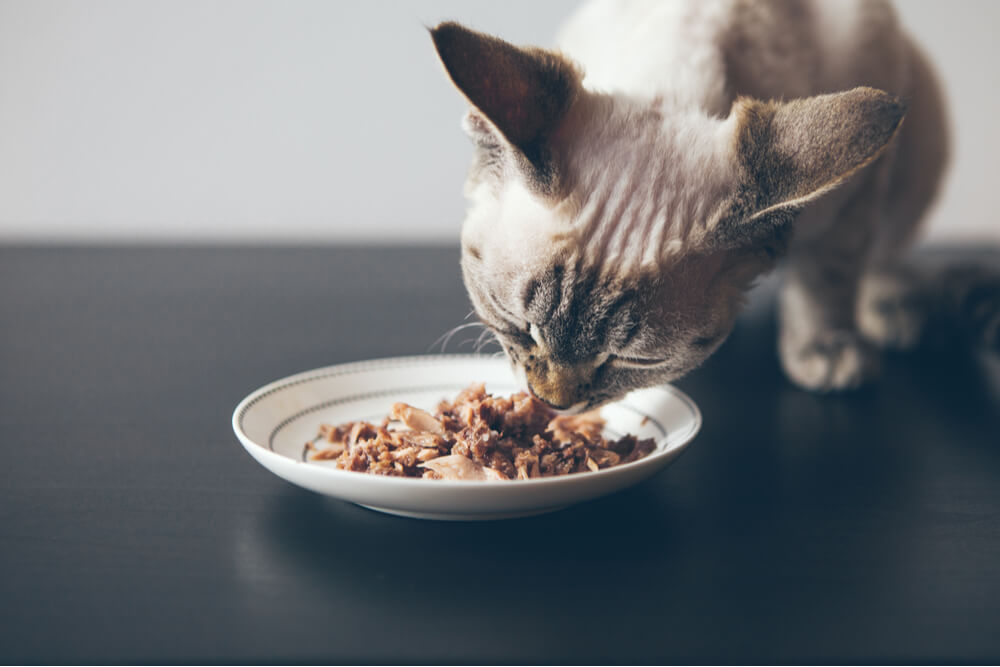
Cats that eat a low-quality food, or a food that contains a lot of fiber, might poop more.
Low-quality diets or those designed to satiate appetite in cats on a weight loss journey contain bulking agents or fillers that do not provide nutritional benefits to the animal. These can lead to an increased frequency or increase in the size of bowel motions as less food is digested. These stools will tend to have a normal consistency.
Also Read: The 10 Best Cat Foods In 2023
2. Exercise
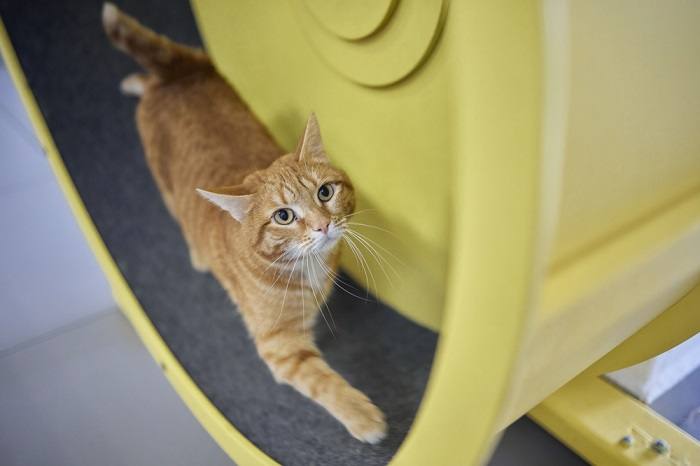
Active cats tend to poop more than sedentary cats.
Cats with a more active lifestyle are more likely to have an increased frequency of normal bowel movements compared to cats that kick back and relax all day.
Also Read: Why Do Cats Need Exercise And The 5 Things To Consider
3. Age
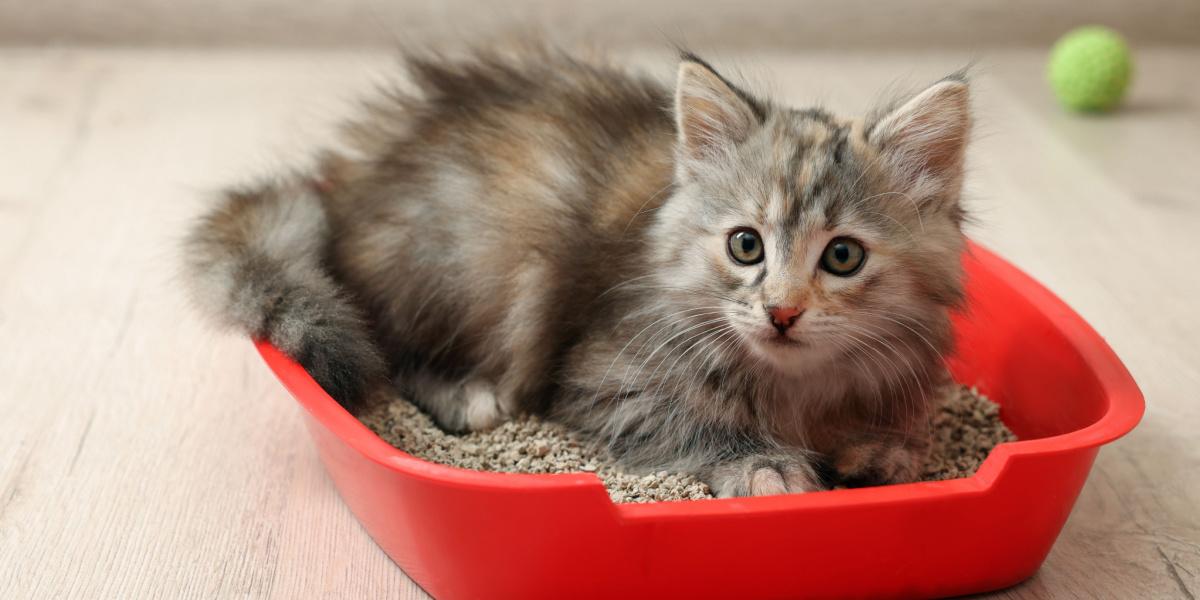
It’s normal for kittens to poop more often than adults.
Young cats and kittens tend to have more frequent bowel movements than adult cats or older cats.
4. Food Sensitivities
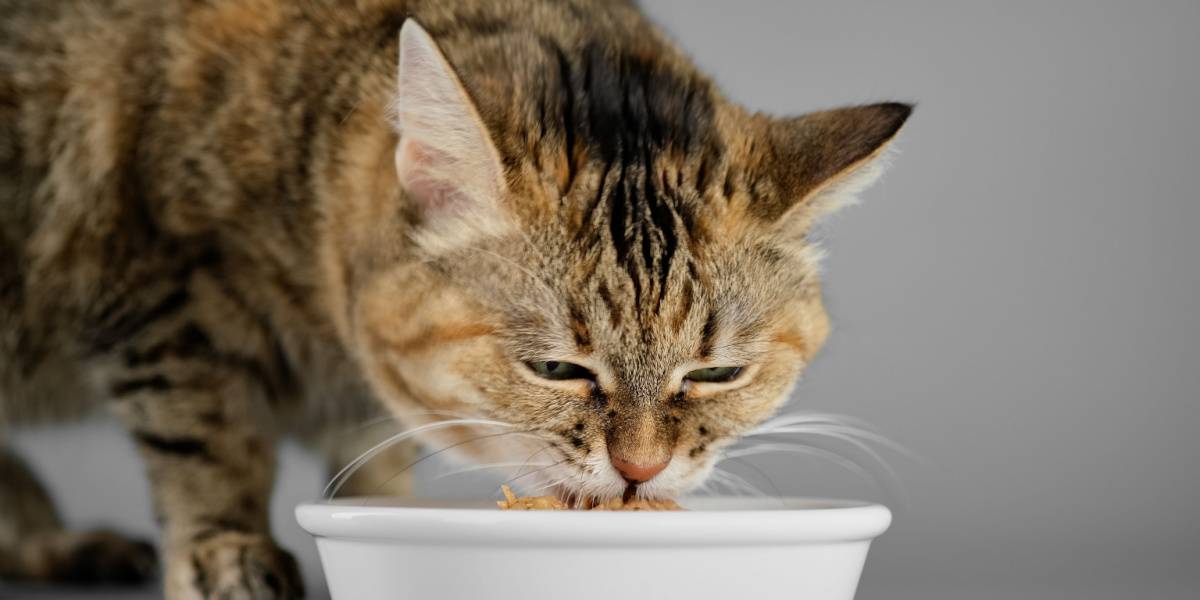
Food allergies or intolerances can affect the consistency and frequency of a cat’s poop.
Some cats suffer from a condition called “food-responsive enteropathy.” This complex condition results from a cat having a food allergy or food intolerance to specific components in food. Proteins are a common culprit. Affected cats will often have loose stools and might vomit.
5. Inflammatory Bowel Disease
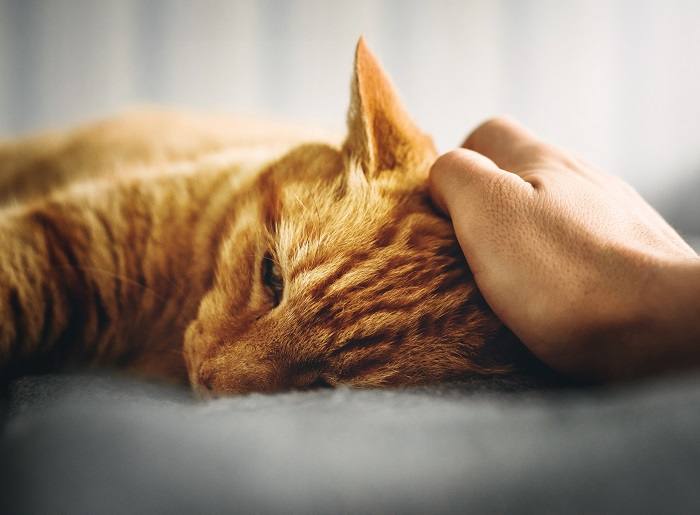
IBD in cats can cause diarrhea and other symptoms.
Inflammatory bowel disease, or IBD, is a very complex and poorly understood condition resulting from an intricate interaction between your cat’s immune system, the bacteria in her gut, and environmental stimuli such as dietary components.
Affected cats often have diarrhea and might also vomit or show signs of weight loss. Prescription cat food may be recommended.
Also Read: Best Cat Food For IBD
6. Hyperthyroidism
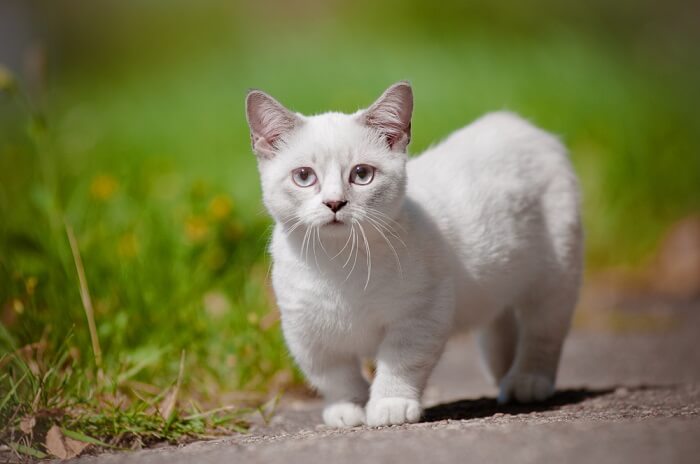
Cats with hyperthyroidism might eat more and experience stomach upset.
Hyperthyroidism is a condition that results from an overproduction of thyroid hormones. Thyroid hormones are essential in setting basal metabolic rate, the amount of energy the body uses at rest.
Cats with hyperthyroidism might show signs like increased appetite, weight loss, or behavioral changes alongside symptoms of tummy upset.
Also Read: Best Cat Food For Hyperthyroidism
7. Intestinal Parasites
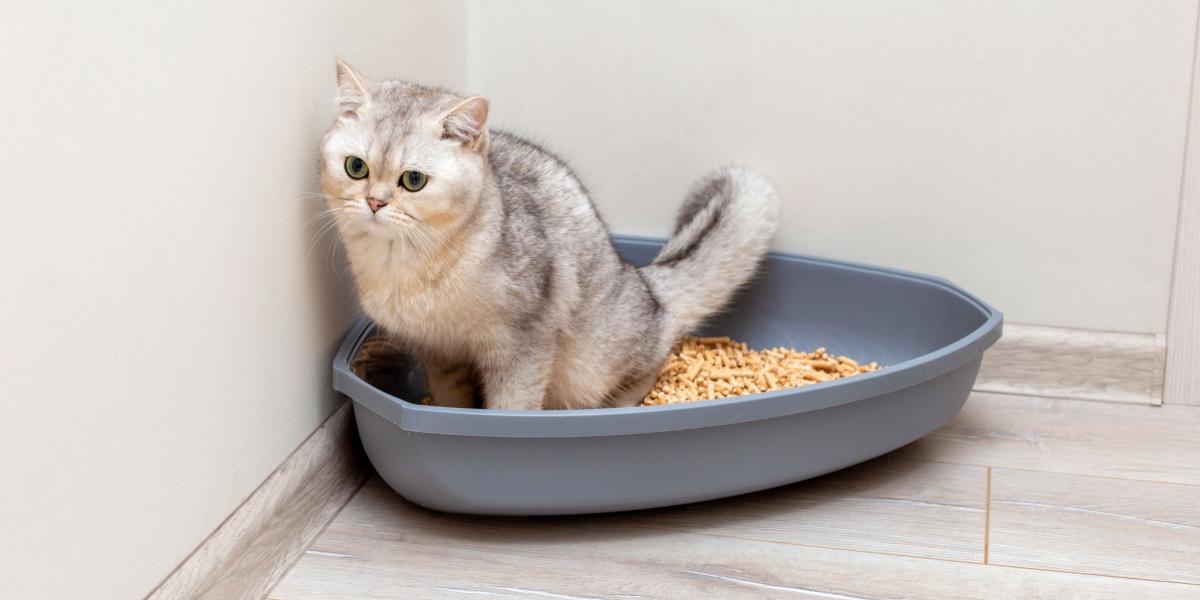
Cats with intestinal parasites might have diarrhea or other symptoms.
Intestinal parasites are more common in young kittens and cats that actively hunt but can affect any age of cat. Speak to your veterinarian about prophylactic treatment protocols suited to your cat’s life stage and lifestyle.
What Does a Decrease in Pooping Frequency Mean?
A decrease in frequency might result from your cat eating less than usual, which is always a cause for concern. Other causes of a reduction in pooping frequency include:
1. Constipation
Many different health issues in cats can cause constipation. Signs of constipation include straining to poo or passing very hard, small nuggets of feces. Your vet might prescribe laxatives or an enema for cat constipation.
Any cat straining to use the litter tray should see a vet promptly. Bowel blockages are serious, but urinary obstructions can quickly be life-threatening, so never delay a vet visit.
Also Read: Best Cat Food For Constipation
2. Megacolon
Megacolon occurs when the large bowel becomes distended and no longer functions as it should. It can result from chronic constipation or several other disease processes. It often requires lifelong medical or even surgical management.
3. Obstruction
Cats typically aren’t as bad as dogs for eating none food items, but cats can also be affected by foreign bodies that can lead to an obstruction. Other obstruction causes include intestinal parasites, intestinal tumors, or an intussusception (where the gut telescopes on itself).
Also Read: Cat Digestive System: Anatomy, Diseases, & Treatment
4. Pain
Any condition that results in pain when attempting to poop will make your cat more reluctant to pass a bowel movement. Example health conditions include arthritis or other musculoskeletal problems.
Cats rarely let on when something hurts, so if you notice a decrease in poo frequency, get your cat checked out by the veterinarian.
Also Read: What Can You Give A Cat For Pain? 6 Vet-Recommended Options
5. Age
Elderly cats might have a reduction in the frequency of bowel movements. This might sometimes be associated with conditions such as arthritis leading to pain and reluctance to posture to defecate.
Other Poop Problems
Any of the following signs indicate a potential problem with your cat’s health:
- Blood
- Increased odor
- Worms
- Color changes
- Consistency
Other Changes to a Cat’s Toilet Habits
1. Behavioral Reasons
The frequency of your cat’s litter box use can be affected by behavioral components such as stress or anxiety. This can be especially problematic if you have multiple cats in the home and too few resources for everyone.
As a general rule of thumb, provide one more litter box than you have cats (this rule applies to any resource, including beds, food bowls, etc.). If your cat’s litter box is somewhere noisy or busy, move it to a quieter area.
Also Read: The 5 Best Elevated Cat Bowls
2. Medications
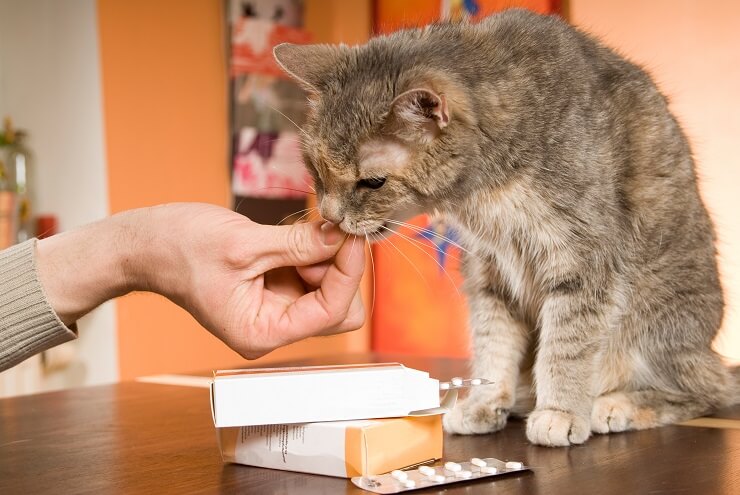
Certain prescribed medications can cause changes to the frequency or consistency of your cat’s bowel movements.
Many prescribed medications can affect the frequency of your cat’s bowel movements. Some might increase the frequency or even cause diarrhea, while others can lead to a decrease in the frequency or constipation. If your cat is on medication and you notice a change in their bowel movements, it is essential to inform your veterinarian as soon as possible.
Also Read: The 6 Best Anti-Vomit Cat Bowls
My Cat “Goes” Outside
If your cat likes to roam outside, it might mean you have no idea what goes on with their digestive system. If your cat has digestive issues, you might see any of the following signs in addition to changes in stools:
- Weight loss
- Changes in appetite
- Changes in thirst
- Lethargy
- Hiding away or increased grumpiness
- Looking unkempt
Do Cats Poop Less on Wet Food?
Feeding your cat wet food can impact how often they go to the litter box. wet cat food has a higher moisture content, promoting better hydration and resulting in softer stools.
The easier digestibility of wet food means cats absorb more nutrients, resulting in less undigested material in their system.
Additionally, wet food is generally lower in fiber compared to dry food, which can contribute to increased bowel movements as fiber adds bulk and regulates stool consistency.
Final Thoughts
There is so much information that can be gleaned from your cat’s litter tray, so don’t be surprised if your veterinarian asks you for lots of detail when you go to the clinic with a concern about bowel movements.
If ever you are unsure if what you’re cleaning up is normal, always reach out to your local veterinary care provider for advice. Remember, as gross as it might seem, your vet will never say no to a photo of poop if it’s easier than describing it!
Related Conditions:
- Inflammatory Bowel Disease (IBD) In Cats: Symptoms, Diagnosis, And Treatment
- Hyperthyroidism In Cats: Symptoms, Treatment & Causes
- Cat Constipation: Causes, Treatment, & Remedies
- Megacolon In Cats: Causes, Symptoms, And Treatment
- Cat Anal Gland Problems: Causes, Symptoms & Treatment
Frequently Asked Questions
Is it normal for a cat not to poop every day?
How often your cat poops depends on many different factors, including the cat’s diet, age, and exercise levels, and whether they suffer from any medical conditions. Most cats will poop every day, but just because your cat does not, it doesn’t mean something is wrong.
Generally, if it has been more than 48 to 72 hours since your cat's last bowel movement, it might mean things are not moving quite as they should, and it’s time to speak to your veterinarian for advice.
How many times should my cat poop a day?
Most cats will poop one to two times daily, but not every cat will poop every day. It is important to learn what is normal for your cat so you can tell if they have an increase or decrease in poo frequency, as this can indicate a health problem.
Why is my cat eating but not pooping?
A decrease in pooping frequency can be seen for many reasons, including dietary changes, constipation, or parasite infections. If your cat has gone more than 48 to 72 hours without a bowel movement, it is advisable to have her checked by your local veterinarian.
 Fact checked by
Fact checked by

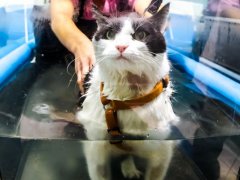
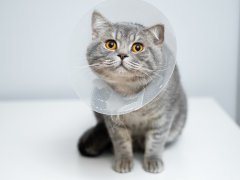



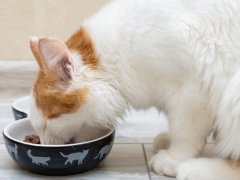
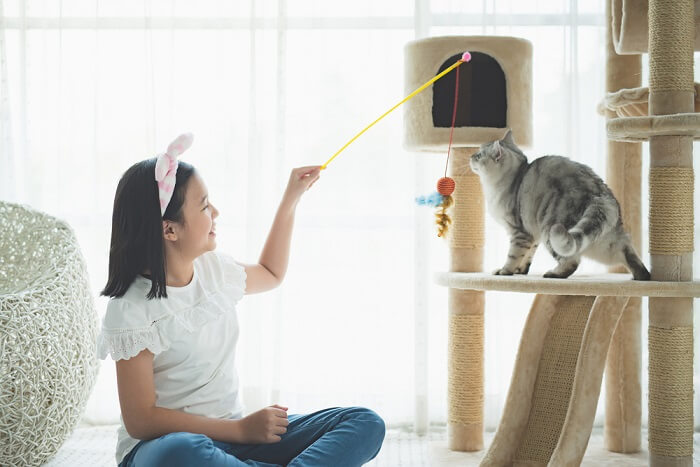
I have been a cat “guardian” for only the last two years. I came late to the pleasures of cats due to believing I was allergic. I now have four cats and can definitely say I love and appreciate every minute of it. The time taken to understand them has been a genuine eye opener for me. They are just as loving as dogs in their own way (I am also a dog lover) …more polite I’d say and willing to put as much into the relationship as you are.
The point of this comment eventually….is to say that your website and YouTube shorts have been a godsend to me. Not just to point out the more obvious stuff on living with cats but the little insights that normally don’t come to you until you’ve been doing it for some time. It has helped myself and my guys and girl get off to a flying start. Thank you and keep up your great work.
A Granny from Scotland ❤️😻
Aww, thank you so much for the kind words! It’s fascinating to hear that you’re appreciating the short videos, specifically—this is a new area for me, so it means a lot to know that someone likes them. It’s great to have you here, and I wish you and your four kitties all the best!
This is great; I came here looking for frequency & appreciate the info!
However, I don’t think anal gland issues &/or blockage were brought up in relation to constipation. Until last week, I didn’t know that could be a thing with cats! My otherwise healthy two year old cat was constipated, and had large anal glands that needed to be expressed. (Also had an enema, X-rays. Bloodwork.) I had to switch her to wet food & am adding Metamucil per Vet instructions.
She didn’t poop for 6 days! She’s gone twice now, and I couldn’t be happier. In any case, in my 30 years around cats, I’ve never had one with anal gland issues, but apparently, more prevalent than I thought! Thanks for your info.
What is the solution for picky cats eaters? I’ve spent so much money to find the food that my cats would really like and stay eating it.